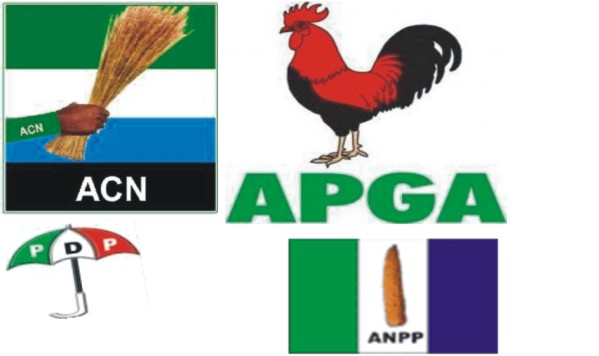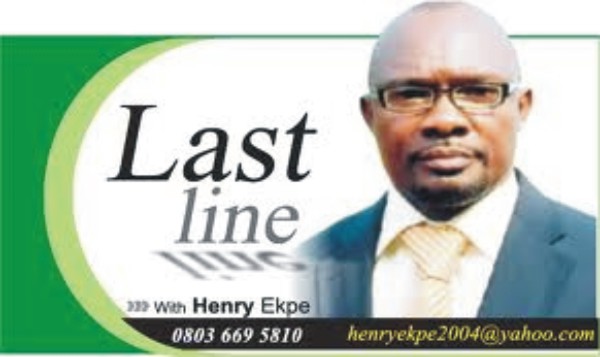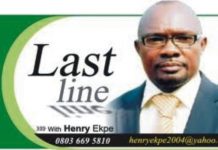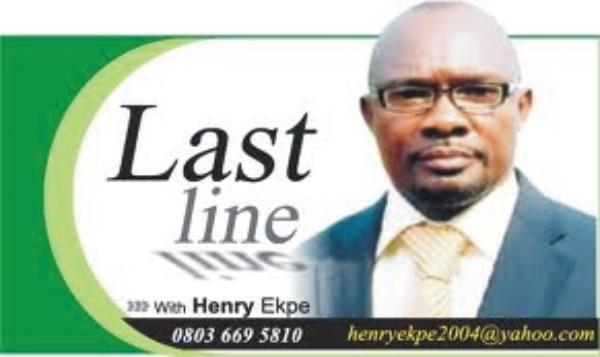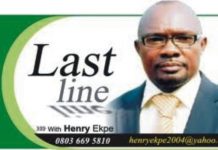Igbos are in political quandary. They are a people in wonderland wondering what their political fate will be in 2015.
2015 is a crucial year for the Igbos who are uncertain on how to get to the presidency. For an ethnic tribe that constitute part of the large population of the Nigerian statecraft, it is pitiable that they have remained the weeping child of the Nigerian family. This has continued for so long compelling Igbos to wonder if they are strangers or visitors in a nation they call their own. After the Civil War the cry of marginalization by Igbos has continued unabated. This has compelled the Igbo nation to always play second fiddle in the nation’s scheme of things. This has continued for a long period. Since the return of democracy 13 years ago in Nigeria, Igbos sober political condition has remained the same. It has gone from bad to worse. And because Igbo leaders are yet to find the rhythm that will enable them collectively change their misfortune, the nation’s number one seat has continued to elude them.
Further, despite the fact that four of the six geo political zones in the country has had a feel of the presidency since 1999; it is disheartening that Igbos, being a major ethnic tribe that has made enormous contribution to the economic development of the country have failed to achieve the task of producing the nation’s president.
A close observation of our political predicament reveals that Igbos are the architects of their misfortune having failed to align their aspirations to a political party on whose platform the Igbo Presidency project can be achieved. A flashback to factors and events that led to the collapse of the realisation of Igbo Presidency in the past is mainly rooted on the fact that they have been unable to locate which political party among the major political parties in the country can cruise them to the presidency.
“What we have seen are disjointed campaigns, incoherent and discordant tunes from Igbo leaders who proclaim Igbo Presidency in the morning only to support a Northerner in the evening. We have seen lack of co ordination, individualistic approach by Igbo leaders who hide under the canopy of Igbo presidency agenda to champion their selfish political interest. We have also seen political parties and their presidential candidates who claim to have similar Igbo names that come to Igboland to shop for votes and bingo, dump us when their presidential quest succeeds”.
Recently, former Abia State Governor, Dr.Orji Uzor Kalu, revived the quest for the actualization of Igbo Presidency project. Orji with his new found Njiko Ndigbo is re echoing the need and importance for Igbos to insist it is their turn to produce the country’s next president in 2015. Similar pro Igbo Organizations has re echoed the need for President Goodluck Ebele Jonathan not to seek re election in 2015 and back an Igbo as his successor. The former Abia Governor has embarked on a tour to several States in the Federation preaching his new found Igbo Presidency gospel which in his thinking is due and should be a reality in 2015.
Again and painfully, it is sad that the founder of the Progressives Peoples Alliance (PPA) and his co agitators failed to identify the principal factor that will ensure the reality of this noble project.
Orji is singing an old song that has no treble or bass. A song that has been sung in the past that did not appeal to its listeners. The group has ignored that salient factor that has been the major hindrance that militated against Igbo Presidency in the past. It is stunning that Kalu and his Njiko Igbo are towing the same path that did not yield any positive result or take Igbos close to realising the Igbo Presidency agenda. That Igbos need the presidency is not in dispute, rather it is pertinent we do not overlook those factors that have made the dream to be a mirage till thisday. At all times, we have ignored those factors that have impaired the success of this project and this has made us look like bunch of unserious lot in the eyes of brother ethnic tribes in the country.
We have consistently failed to note that what is pertinent for the success of our collective desire is a credible political platform that is not only seen to be receptive to the aspirations and desires of the Igbo nation, but committed to project the cause of the Igbos. With the North also insisting that it is their turn to produce the nation’s President in 2015, we cannot afford to remain aloof to the fact that it is only a political party that believes in the tenets of justice, equity and fairplay that can propel our aspirations to reality. It is only a political party or an alliance of political parties that sees Igbos as those that truly deserves the nation’s number one seat we should embrace.
At this juncture, I believe it is important Igbos strategically position themselves and take a strategic position in leading political parties in the country if it intends to be a major contender for the presidency in 2015. Igbos must critically asses which political party among the lot can serve as a platform to transform our collective expectations to reality. I also subscribe to the view that we should thoroughly compare the disposition, capacity and willingness of such political party to transform our desire to success. We must not becloud our sense of judgment by paddling our political boat to political parties we believe was designed and constituted for the Igbos alone. Or political parties that are regionally based, that sees Igbos as mere tools or instruments to actualize the political agenda of other ethnic tribes.
Let us start with the ruling PDP. It is a party most Igbo leaders have converged. Funny enough it is a party that seem to be averse to give Igbos greater participatory role to enable it advance its cause as a people. The PDP is a party has not offered the much needed opportunity for Igbos to actualize their political desires. Despite the enormous contributions of Igbo sons and daughters to the growth and development of the party, the PDP have continued to reward Igbos with political disappointments. The party has at all times disgraced Igbo leaders and has shown reluctance to offer Igbos its might and size to actualize its motive of producing the country’s President.
First, in 1999, it disgraced one of its founding fathers and a great son of Igboland, former Vice President Dr. Alex Ekwueme at the 1999 Jos Convention rejecting his presidential candidature in preference for an ex military non democrat like General Olusegun Obasanjo. The party also used the position of National Chairman which it zoned to the South East to make a caricature of great sons of Igboland. The first victim was Chief Vincent Ogbulafor who was forced to quit when he was caught in the web of a deadly conspiracy spawn by anti Igbo conspirators in the party. Next was Dr. Okwesilieze Nwodo, who was shoved aside as national chairman of the party on the floor of the Eagle Square, Abuja just to satisfy the inordinate ambition of the party’s emperor! He was also removed for advocating reforms that could usher in internal democracy into the party.
The All Progressives Grand Alliance (APGA) appears to be an Igbo inspired political party. Some say it is a party that represents and reflects the interests of Igbos. For me, it is not. I will define APGA as a political platform to seek for political attention and recognition at a time Igbos needed a voice to echo its relevance in the dynamic and intricate politics of Nigeria. It will not be out of place to say that APGA is Late Dim Odumegwu Ojukwu’s political tool to bring Igbos together to locate its place or role in the Nigerian political firmament at a time Nigeria was coming out of militarism and finding its feet in the new democratic space.
The political situation at that time made APGA a mere rallying point for Igbos. This has served its purpose and has presently outlived its usefulness. It therefore underscores the fact that a regional party with ethnic bias such as APGA cannot be the right platform to actualize the national aspirations of a people. It is a party built on Late Ojukwu’s image and clout and with the Igbo leader resting peacefully in his grave; APGA has lost the willpower to be relevant in the nation’s political space. The party is weak structurally and sadly bedevilled by internal crisis that is almost tearing it apart. With two States in the South East in its domain without a single Councillor from any other part of the country, the party cannot be said to have a national outlook or posture to take an Igbo to Aso Rock in 2015 in nation with diverse ethnic plurality.
Enter All Nigeria Peoples Party (ANPP). The ANPP is the only political party that has made a conscious effort to convince Igbos that it is that right political platform with strong political tentacles to get Igbos to the Presidency in 2015. The party’s national Chairman, Dr. Ogbonnaya Onu in his address to Igbo Leadership Forum of World Igbo Congress, held in the United States last month appealed to Igbos to embrace the party as the only alternative political party that will translate their expectations to reality.
Onu said ‘The Igbos in politics should look beyond the ruling party. We should study the political terrain very carefully and take decisions which are in our own very best interest. We should always remember what our ancestors taught us, that when answering the call of nature, we should go with two pieces of sticks. If one falls by the wayside unnoticed, the other can still be relied upon to perform its duty when the need arises’.
He continued ‘The Igbos need an alternative political party that has a national reach and is not perceived by the general public as a regionally based party. The All Nigeria Peoples Party, ANPP, is that political party which the Igbos should embrace so that they can always make a viable choice. The Igbos needs to diversify, as an insurance against the unknown and the unseen’.
While Dr. Onu’s appeal displays the party’s disposition to bring Igbos on board the train that will ensure the success of their political aspiration, a school of thought contend that the ANPP has the tag of a regional political party. With three States namely Zamfara, Borno and Yobe in its kitty, mainly in the North, the party is said to have weak political structures especially in the South.
Much as I agree to some extent these postulations, it is important to state that the ANPP is the only political party that has undergone internal political surgery and extended a hand of friendship to the Igbos as the next political dispensation draws near. It is a party that has in recent times shown its willingness to work for the Igbos. The party for the first time on inception has a Member of the House of Representatives elected from one of the South East States, Ebonyi that sits in the hallowed chambers of the National Assembly. It also has a Senator on its platform from Kogi State. Its National Chairman is from the South East, while two of its three governors come from the North West. The other is from the North East.
The Action Congress of Nigeria is another political party that has shown some sparks to take over from the ruling PDP. But it is a party that has not hidden its political identity and what it represents. It is a party by the Yorubas and for the Yorubas. It has not made pretences about it. This is why the party has it base in the South West region alone and has no intention whatsoever to expand its political tentacles beyond its shores. It has six governors all domiciled in the South West and only one senator outside its political enclave. The ACN has not hidden its passion to champion the interests of the South West region alone which they consider as a positive tool to negotiate whatever they can from the national cake. Styled in the mould of late Chief Obafemi Awolowo’s Action Group, the ACN can be said to be politically averse to the cause of Igbos.
Igbos should watch before they leap. I rest my case.
/p


